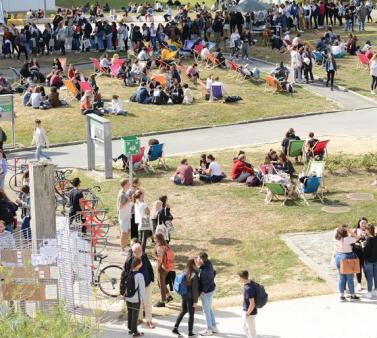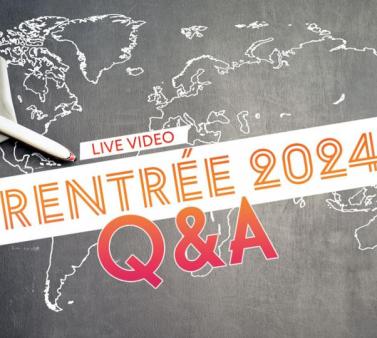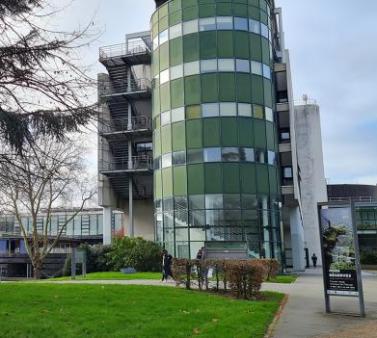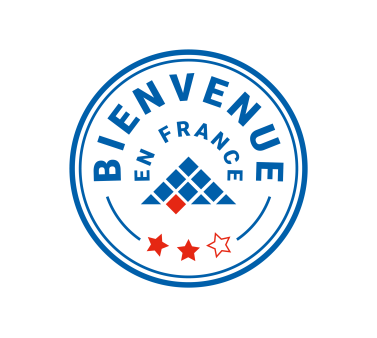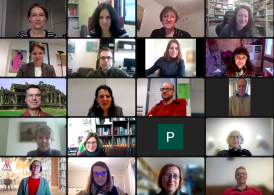
Professor Christine Evain is a Professor of Didactics and Language Acquisition at Rennes 2 University. She is also the Director of the research unit LIDILE - Linguistique, Ingénierie, Didactique des Langues/ Linguistics and Language Didactics - which focuses on the analysis of language activity, its description and formalization through the variety of its modes or fields of application, and the diversity of natural languages. Last year, she was awarded the Ubiquitous Learning Award for her article written with Chris De Marco, Professor at Audencia Business School in Nantes. Professor Evain embarked on TELME together with Professor Elisabeth Richard, Head of the Ecole Doctorale ELICC - Education, Langages, Interactions, Cognition, Clinique / Education, Languages, Interaction, Cognition, Clinical medicine - and Director of the Language Teaching’s Master’s degree program. The International Office at Rennes 2 University and its Director Amal Jouffe - El Amrani have also been involved from the beginning, and have provided a continuous support to the project.
Erasmus Mundus Design Measures: promoting integrated transnational study programs
The aim of the EMDM program is to encourage participating institutions to internationalize their curricula and teaching practices and develop integrated transnational programs through “the design of high-level study programmes at Masters level, jointly delivered by an international consortium of higher education institutions from different countries worldwide and, where relevant, other educational and/or non-educational partners with specific expertise and interest in the concerned study areas/professional domains”.
In addition to Rennes 2 University, the partners involved in the project include: the University of Limerick (Ireland), Åbo Akademi University (Finland), Matej Bel University (Slovakia), Universidad de Burgos, (Spain) and the Adam Mickiewicz University (Poland). The idea is that the program will offer a double diploma, and potentially a combined diploma after a few years, to its students. Whether they, for example, study one year in Limerick and one year in Rennes, or in Slovakia and then Finland or Spain, they will have an Erasmus Mundus Masters diploma through TELME.
How the project TELME came to life
Professor Evain and Professor Richard thought that Rennes 2’s Master of Didactics of Languages program fit in perfectly with the objectives of EMDM. Internationalizing the program would offer students a mobility track possibility, a crucial element for students of foreign languages. As Professor Evain explained, “While our program for teaching French as a foreign language is quite successful in attracting students, we wanted to provide a boost to the section of the program focusing on the teaching of English as a foreign language. But, in order to do that, we need to be able to offer them a mobility track so they have the potential to go study in English-speaking countries.”. Another clear benefit of the program is the fact that students joining a Joint Master under Erasmus Mundus may apply for scholarships of the Erasmus Mundus Joint Masters (EMJM).
If the project TELME wishes to build a program open to international students, it is also a vibrant illustration of Rennes 2’s strategy of internationalization at home. “We have about 40 percent of international students in our Masters program, and with Covid and the subsequent increase in distance-learning programs, it has meant that we have even more foreign student applications than before. The challenge therein lies in being able to continue to provide quality to the students and not just quantity. We want to be able to deliver an offer which includes innovative pedagogies and virtual exchanges, alongside physical mobility possibilities. And the funding that comes with the Erasmus Mundus program should help us to be able to do that.”
TELME also has, at its heart, the goal to improve the employability of participating students. Hence, partners will elaborate a program that will give the opportunity to learn two foreign languages and acquire the ability to open up to the challenges of multi-cultural and discrimination-free environments, highly sought-after competencies in today’s professional world. Professor Evain and Professor Richard decided to capitalize on existing partnerships which share similar values - partner universities of the eMERGE project, as well as a long-standing Finnish collaborator, Åbo Akademi University. “Throughout my experience with the VEC program, we saw that our eMERGE partners were very dynamic and we thought we would try to find a way to bring them even closer to the heart of our syllabi.”
In addition, TELME will seek ways to collaborate with the business world and other institutions, helping to guarantee a focused training process through European and non-European networks, regional organizations, companies, libraries, cultural institutions – allowing for a more varied training and conference and internship opportunities.
Finally, TELME wouldn’t have been possible without the joint efforts of all the international partners mentioned above, the “Plateforme Projets européens (2PE)” and various offices at Rennes 2 University: the International Office, the DÉVU, the Language Research Training Unit and the team in charge of the Language Teaching’s Master’s degree program.
Next steps in the EMDM process
The universities that have been selected thus far will have only 12 months to refine and submit their detailed plans for their double diplomas. Only half of these applications will continue to be financed. “For now, we need to focus on shaping our joint content, juries, syllabi and grades etc. We have to agree on these points from one university to another, and it needs to be seamless from one university administration to the next. So at the end of the day, we need to create a system that allows us to think and work as one.” The challenges that lie ahead are formidable, but the potential advantages of the project for students, institutions and other involved actors are also extremely motivating.
TELME held its kick-off meeting on Wednesday, January 12th
The meeting started with a welcome speech by Lesley Lelourec, Vice-President in charge of Internationalisation at Rennes 2 University. The Vice-President thanked everyone for the quality of their work and enhanced the wonderful opportunities this project would bring. Professor Evain then explained in further details the project, its scope, structure and objectives, and introduced her team members: Hélène Rannou-Boucher, European Projects Engineer for “Plateforme Projets européens (2PE)” who gave a very interesting presentation about the scope of Erasmus Mundus projects and the requirements of the European Commission concerning Erasmus Mundus Joint Masters (EMJM) ; Jean-François Arditi, a Consultant specialized in Erasmus Mundus projects who will monitor the qualitative aspects of the project TELME and Adrien Nicol, European Project Manager at Rennes 2 University.
The kick-off meeting was divided in four different workshops - one workshop per work package (WP1: Management and coordination, WP2: Joint Master Degree design, WP3: Communication, WP4: Student management) - and gave the partners the opportunity to work together, share ideas and get used to the online tools and platforms designed by the Project Manager Adrien Nicol.
As Professor Evain highlighted at the beginning of the meeting, Erasmus Mundus projects strive for excellence, like all the partners working on the project TELME. It could not be more promising.

